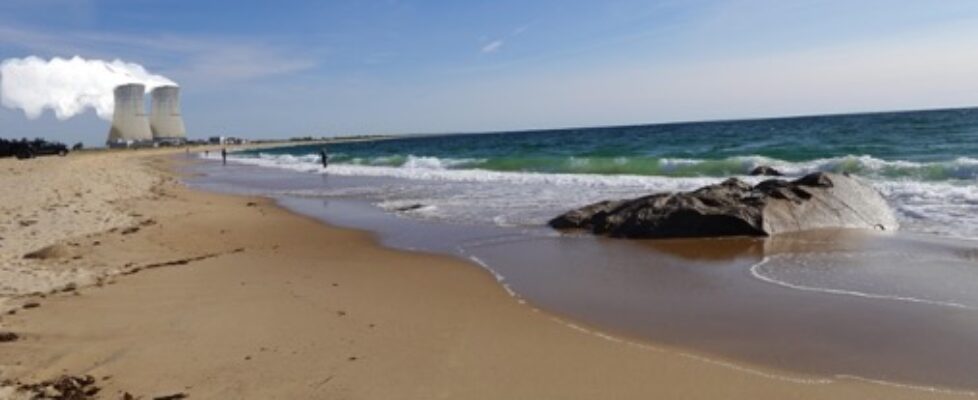Charlestown’s Brush With A Nuclear Power Plant
When: Wednesday, March 27 at 6 p.m.
Where: Cross Mills Public Library, 4417 Old Post Road, Charlestown
What: “A Small Town’s Brush with Nuclear Power”, presentation by Journalist Brian Mitchell who was hired as the first editor of the Chariho Times in 1977, when plans to build a nuclear power plant in Charlestown were well underway. Brian will recount the story of reporting on this controversial proposal.
Most know the Ninigret National Wildlife Refuge and Ninigret Park are located where the Charlestown Naval Auxiliary Landing Field once was located. But many do not know the site was almost the location of a nuclear power generating facility. With a journalist’s thorough research and keen observation, Brian Mitchell brings the story of this critical period in Charlestown’s history to life.
Short history below is from the Energy Chapter of Charlestown’s 2021 Comprehensive Plan.
In 1973 the US Navy announced that the Charlestown Naval Auxiliary Landing Field, a WW II-era naval training base lying along the shores of Ninigret Pond, was excess to their needs. The US General Services Administration then initiated the process of disposing of the property. In response, the New England Power Company (now a subsidiary of National Grid) pursued acquisition of the base as the site to build two 1,150 megawatt nuclear power plants. The company planned to cool the power plants with water from Block Island Sound.
After nearly six years of studies, passionate debate and litigation, the power plant proposal was dropped in favor of transferring the land to the Town of Charlestown and the US Fish and Wildlife Service (by way of the US Department of Interior). These irreplaceable public lands are now the 230 acre Ninigret Park and the 380 acre Ninigret National Wildlife Refuge Salt Pond Unit.
Charlestown’s opposition was the first successful campaign in the United States to halt the construction of a nuclear power plant. The years of environmental study to oppose the plants also launched a movement to preserve the coastal ponds.
Nuclear power seems highly unlikely to be proposed again for coastal Charlestown as the land and ponds are now protected as federal, state and local parks and refuges. But the memory and details of this history should not be lost.

March 26, 2024 @ 7:13 pm
What about the building that blew up on now Carter preserve ? The operator died. Does this have any effect on our water in this area?